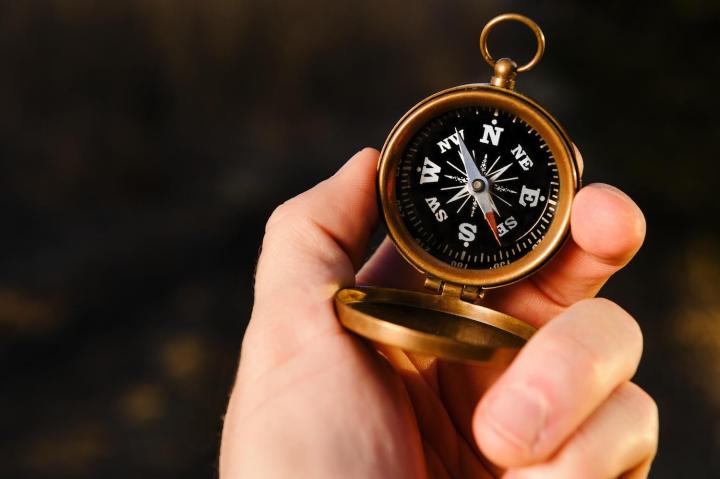
No matter where you stand on the NSA’s surveillance activities, one thing is not up for debate: To use the Internet is to be spied on to one degree or another, either by clandestine government agencies tasked with preventing terrorism or marketing companies looking to make a buck from your personal data.
If you don’t want to be watched, stop using the Internet – there is really no realistic alternative for the average person, and there won’t be unless some highly unlikely reform packages make their way through our gummed-up government.
The Internet and the gadgets that connect to it are now indispensable tools, for better and worse.
Of course, “stop using the Internet” is worthless advice – it’s neither desirable nor feasible, and I’m certainly not suggesting anyone would be better off taking that course of action, even if it were possible (which it’s not). Business, education, entertainment, and critical infrastructure networks all rely on an Internet connection to operate and survive. Even my 70-year-old father, who literally sells dirt for a living, must use the Internet on a regular basis. And nothing short of an asteroid hitting Earth or a supervolcano eruption is going to change that. The Internet and the gadgets that connect to it are now indispensable tools, for better and worse.
But it doesn’t take an international spying scandal to make clear that the high-tech tools on which we rely put us at a distinct disadvantage when things go wrong. Anyone whose cell phone battery has died – i.e. everyone – knows exactly what I’m talking about. As does anyone whose online accounts have been taken over by malicious hackers. In those rare instances, at least for a moment, days before the Internet – hell, days before electricity (as if any of us can remember such a time) – don’t seem so shabby.
All of this has led me to the conclusion that, while the Internet and smartphones are great, we are fools to rely upon them entirely, without having the skills, tools, and knowledge necessary to carry out a low-tech backup plan.
Take, for example, the tale of a pair of day hikers who recently got lost in an Oregon state park. As my colleague Molly McHugh tells it, the hikers were only able to escape the wilderness because of a number of helpful smartphone apps, including (of all things) Instagram, as well as Google Maps, Share My GPS Coordinates, and the flashlight app.

Of course, you might say, any experienced hiker knows this, and would never find themselves deep in the forest without some fool-proof way to get out. And you’d be right. But that’s because it’s easy to plan ahead for being lost in the woods. You can anticipate the problems, and prepare accordingly. But what about situations that we aren’t ready for simply because they seem so unlikely that to prepare for them in advance might make you feel like you’ve turned into a paranoid freak?
If you plan on spending a day in the great outdoors, please, learn to use a regular old compass, and make sure to pack it for the trip.
I can think of two such instances in my own life. The first came on September 11, 2001. My brothers and I had gone surfing at Rockaway Beach in Queens, New York, on that fateful Tuesday morning. With hurricane Aaron floating off the Atlantic coast, the 12-foot waves pounded on the shore. Then, around 8am, we all know what happened. Within minutes, cell phones jammed. There was virtually no way to instantly communicate with anyone outside my immediate vicinity. The network, as it was, had failed.
The second example came a couple of years later, when the entire U.S. Northeast and parts of Ontario, Canada, experienced a massive blackout due to a software bug at the FirstEnergy Company in Ohio. Roughly 55 million people were without power – meaning no cell phone service, Internet, television, traffic lights, or air conditioning – for roughly 24 hours.
Just as getting lost in the woods is relatively unlikely, so too are these extreme cases of things gone wrong. And even the NSA spying scandal, which has so far led two trusted email service providers to shutter their doors over government requests for user data, is an extenuating circumstance. But these things do happen, and in a time when our reliance on networks and gadgetry is so high, the consequences of things going haywire – a power outage, terrorist attack, or cybersecurity meltdown – is just as significant. Should you base your entire life on things going wrong? No – but to not have a contingency backup plan in place is just as foolish.
So what does that mean? For businesses and governments, that answer is far too complicated for me to answer. For individuals, however, I can at least recommend having a plan in place for how to communicate with loved ones and employers. Keep you important files and documents stored in multiple locations, including at least one that has no direct connection to the Internet. And if you plan on spending a day in the great outdoors, please, learn to use a regular old compass, and make sure to pack it for the trip.
(Image via Shutterstock, all rights reserved.)


